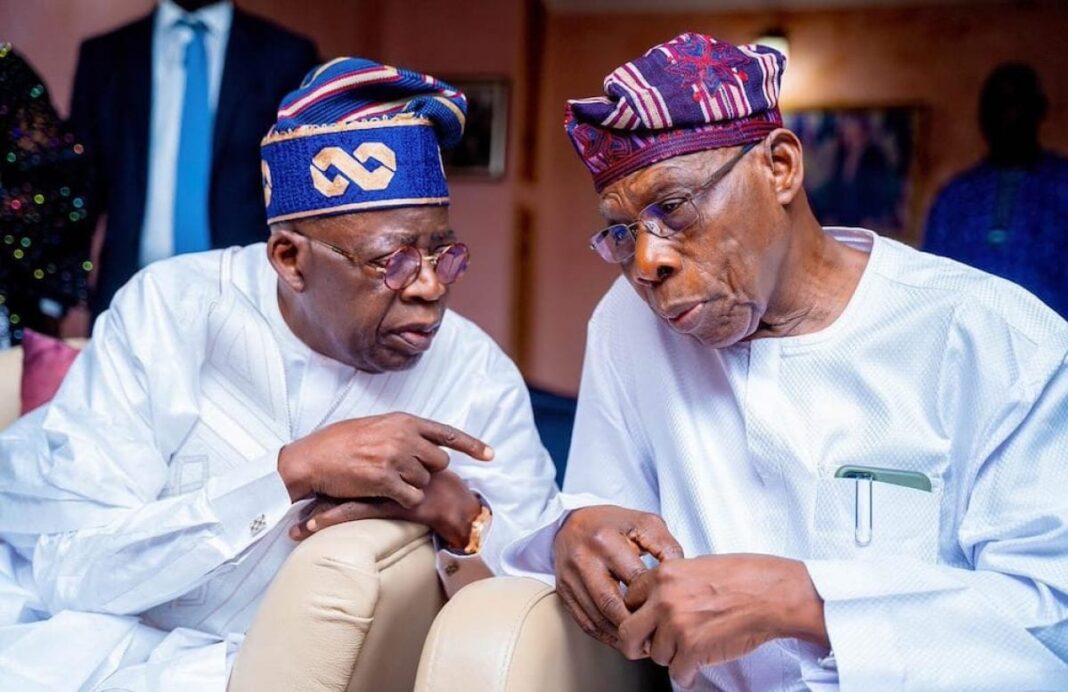Former President, Chief Olusegun Obasanjo, has expressed concern over the economic policies of President Bola Tinubu’s administration, stating that the government has yet to find the right approach to handle the economy.
In a statement issued by his Special Assistant on Media, Kehinde Akinyemi, on Sunday, Obasanjo acknowledged that the removal of the fuel subsidy by Tinubu was a necessary move but criticized its implementation, which he believes has led to widespread suffering. “Today, government has taken three decisions, two of which are necessary but wrongly implemented and have led to impoverishment of the economy and of Nigerians,” Obasanjo remarked.
According to Obasanjo, the third decision pertains to Tinubu’s stance on the coup in Niger. These comments were made at the Paul Aje Colloquium (tPAC) in Abuja over the weekend, during a discussion on Nigeria’s development and economic crisis.
Obasanjo also criticized detractors of his position on the refurbishment of the Port Harcourt refinery, describing them as “sycophants and spin doctors.” He stated, “They failed to remember that the attempt that was made in 2007 to partly privatize the refineries was made by me after a thorough study of the situation.”
Commenting on Tinubu’s administration’s first year, Obasanjo suggested several ways to address Nigeria’s economic challenges, including a 25-year development agenda. “The way forward is production and productivity which belief and trust in government leadership will engender. No shortcut to economic progress but hard work and sweat,” he said.
Obasanjo emphasized the need for consistent and transparent economic policies to attract and retain investors. “If the truth must be stated, the present administration has not found the right way to handle the economy to engender confidence and trust for investors to start trooping in,” he declared.
He underscored the importance of moving from transactional leadership to transformational and servant leadership. “With change by us, the investors will give us benefit of doubt, and security being taken care of on a sustainable long-term basis, they will start to test the water,” Obasanjo noted.
Obasanjo proposed a comprehensive 25-year socio-economic development agenda, prioritizing education, food security, energy, industrialization, and technological advancement. “In all these, government should provide a conducive environment for the private sector to operate and thrive,” he stated.
On security, he advocated a balanced approach combining strict law enforcement and rehabilitation. “Stick to deal with those who cannot be weaned out of criminality and evil deeds and for those weaned, they should be rehabilitated,” he said, emphasizing the need for compulsory education and employment rights to deter youth from criminal activities.
In conclusion, Obasanjo called for a concerted effort to eradicate illiteracy and empower Nigerian youths, warning of the social consequences of neglecting education. “No matter what we do, if we do not find a way of educating, giving skills and empowerment, over 20 million Nigerian children that are out of school today will end up being rich recruitment center for drug addicts, Boko Haram, bandits and other social misfits,” he warned.


